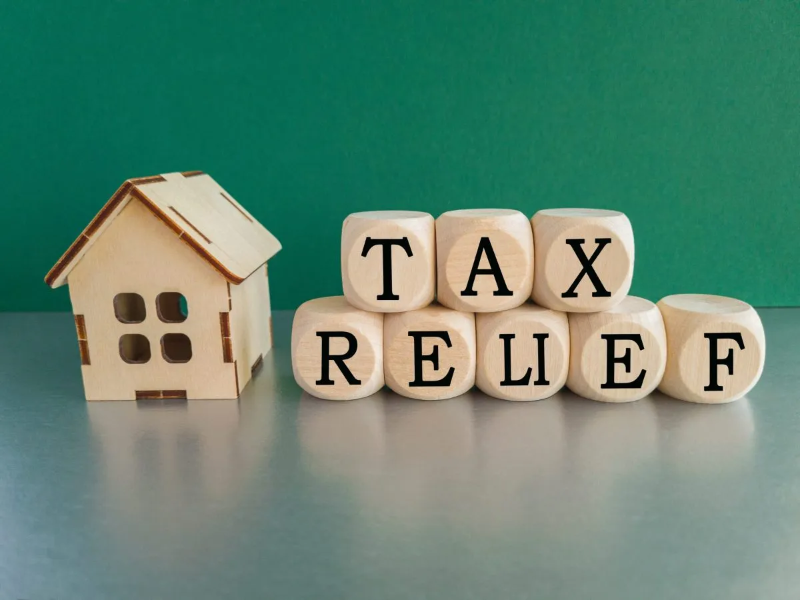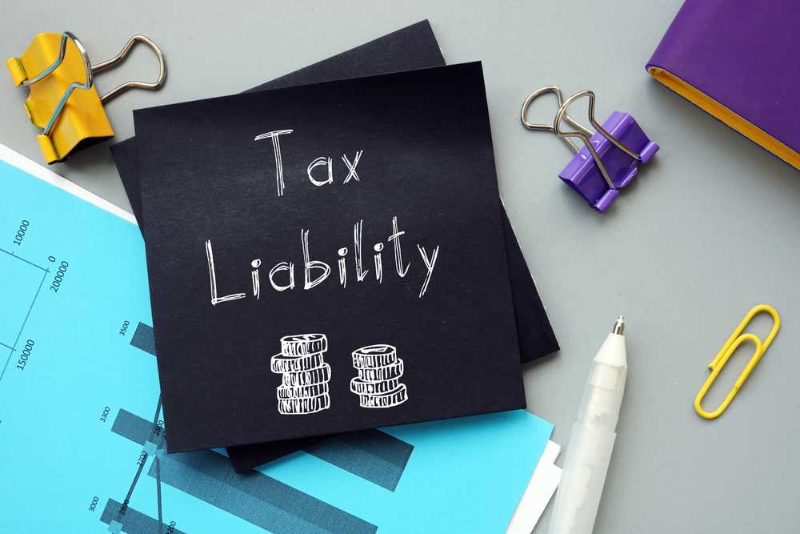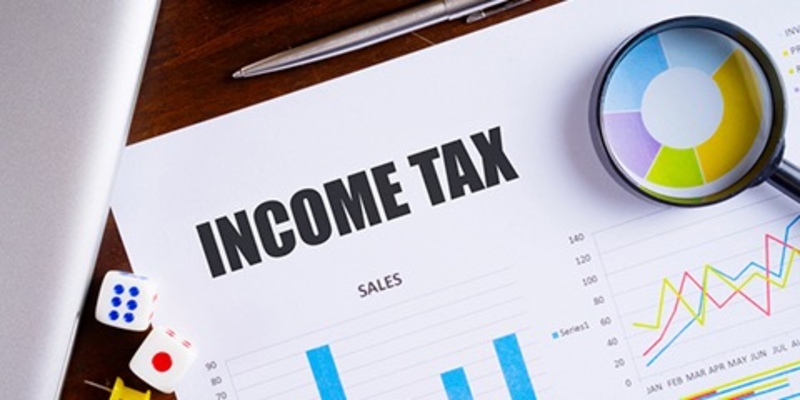Here’s What You Need to Know About Property Tax Deduction
Mar 22, 2024 By Triston Martin
The significant advantage of a property tax deduction accrues to homeowners. Homeowners can claim this deduction on their property taxes, which reduces their taxable income and may yield substantial tax savings. Understanding the mechanics of these deductions empowers homeowners to optimize both their tax savings and overall benefits from owning a home.
Qualifying for Property Tax Deduction
Homeowners must fulfill specific criteria set by the tax authorities to qualify for a property tax deduction. This typically involves owning and utilizing the property as their primary residence. Furthermore, a local government authority must assess the property tax according to its value. Meeting these criteria is essential for homeowners to claim the deduction successfully.

Furthermore, we must note that eligibility for property tax deductions could potentially vary based on factors, particularly the structure of property ownership. To illustrate, individuals who co-own a piece of real estate with others might have to satisfy specific requirements to claim this deduction. Homeowners can ensure they meet all necessary criteria for claiming their tax benefits by comprehending these nuances. This is a crucial step.
- Ownership Structure Considerations: Joint property ownership may have different qualification criteria for claiming property tax deductions, necessitating careful evaluation of ownership structures and associated eligibility requirements.
- Residency Requirements: Some jurisdictions may impose residency conditions for property tax deductions, requiring homeowners to reside in the property for a certain period each year to qualify for the deduction.
Limits and Regulations
Homeowners must grasp the limits and regulations tied to property tax deductions. This understanding is crucial. Though often overlooked, such a deduction can yield substantial tax savings. Yet, caps on deductible amounts are common. Jurisdictions dictate these limits variations exist among them, and it's noteworthy that they may undergo annual changes. To maximize their deductions within legal limits, homeowners must remain informed about any updates or changes.
Furthermore, homeowners must grasp the concept that they may not fully deduct specific expenses related to property taxes. For example, under tax regulations, fees for certain services or improvements might not qualify for a deduction. Homeowners can accurately assess their potential tax savings and avoid misconceptions by staying mindful of these limitations.
- Expense Exclusions: Not all expenses related to property taxes may be eligible for a deduction, including fees for services or improvements not explicitly recognized under tax regulations.
- Annual Adjustment: Homeowners should be aware that the caps on property tax deductions may undergo annual adjustments, necessitating regular review of deduction limits to optimize tax savings.
Documentation and Record-Keeping
Claiming property tax deductions necessitates critical aspects including proper documentation and record-keeping. Homeowners must meticulously maintain their property tax payment records, encompassing receipts as well as local tax authorities' statements. These essential documents function as evidence during the process of filing taxes and asserting deductions. Throughout the year, homeowners can streamline the tax filing process and maximize their deductions by actively organizing and retaining these records. This strategy proves beneficial.
Homeowners must retain records of property tax payments and any relevant maintenance or improvement expenses on their property. These extra documents can potentially bolster deductions, broadening the scope of potential tax savings by encompassing more than just basic property taxes.
- Expense Documentation: In addition to property tax payments, homeowners should maintain records of expenses related to property maintenance, repairs, and improvements to support potential deductions for these costs.
- Year-Round Organization: Consistent record-keeping throughout the year facilitates efficient tax filing and ensures homeowners have necessary documentation readily available when claiming deductions.
Effect on Overall Tax Liability
Homeowners must grasp the crucial impact of property tax deductions on their overall tax liability. These deductions, by diminishing taxable income, have the potential to decrease homeowners' governmental tax obligations; consequently fostering prospective savings in taxes and enabling them to preserve a larger portion of their earnings. Yet, one must deliberate on additional factors that might impact the comprehensive tax liability. These include income level, deductions, and credits.

Homeowners must also acknowledge the potential interaction between property tax deductions and their other employed strategies or credits. By claiming specific deductions or credits in conjunction with property tax deductions, they may further decrease overall tax liability. Thus, offering homeowners more chances for saving on taxes.
- Interaction with Tax Credits: Property tax deductions may interact with other tax credits or deductions, potentially amplifying overall tax savings when utilized strategically.
- Consideration of Tax Brackets: Homeowners should assess the impact of property tax deductions on their effective tax rate, considering how deductions may affect their position within various tax brackets.
Seeking Professional Guidance
Homeowners often find navigating the complexities of property tax deductions challenging. To ensure compliance with tax laws and regulations, they should seek valuable insights from professional advisors in the field, specifically, tax advisors or accountants. These experts can clarify homeowners' eligibility for deductions, consequently, maximizing their potential savings on taxes while circumventing potential pitfalls. Ultimately, consulting experts can lead to superior financial planning and management of homeownership expenses.
Moreover, homeowners must proactively seek guidance from professionals who possess experience in tax matters specific to their jurisdiction. With wide variations of tax laws and regulations across regions, competent advisors can offer customized advice for optimizing property tax deductions. Simultaneously, guaranteeing complete compliance with local taxation requirements.
- Local Expertise: Working with tax professionals familiar with regional tax laws and regulations ensures homeowners receive accurate guidance tailored to their specific jurisdiction.
- Strategic Planning: Tax advisors can assist homeowners in developing strategic tax planning approaches, leveraging property tax deductions alongside other tax-saving opportunities to optimize overall financial outcomes.
Conclusion
In conclusion, the property tax deduction furnishes homeowners with substantial tax savings and assorted benefits. Homeowners can effectively leverage this deduction to diminish their tax liability by grasping its qualification criteria, limits, regulations, and documentation requirements. Further enhancing their ability to maximize these financial advantages and formulate informed fiscal decisions is a result of seeking professional guidance.
-
 Mortgages Mar 22, 2024
Mortgages Mar 22, 20244 Financial Solutions for Furloughed Employees
Explore financial assistance options through loans for furloughed employees, aiding in managing expenses during periods of reduced income.
-
 Taxes Dec 16, 2024
Taxes Dec 16, 2024The Fundamentals of Proportional Tax: A Simple Yet Controversial Approach
Find out how proportional tax systems, also known as flat taxes, operate, their benefits, limitations, and the role they play in economic policies and income distribution.
-
 Taxes Mar 22, 2024
Taxes Mar 22, 2024A Comprehensive Guide to Income Tax Deductions
Uncover essential income tax deductions for 2024. Maximize savings with expert insights on eligible deductions and strategies.
-
 Know-how May 17, 2024
Know-how May 17, 20242024's Top Picks for Fertility Insurance: A Comprehensive Guide
Discover the top fertility insurance plans for 2024, including coverage details, cost, and how to choose the best option for your family-building journey.
